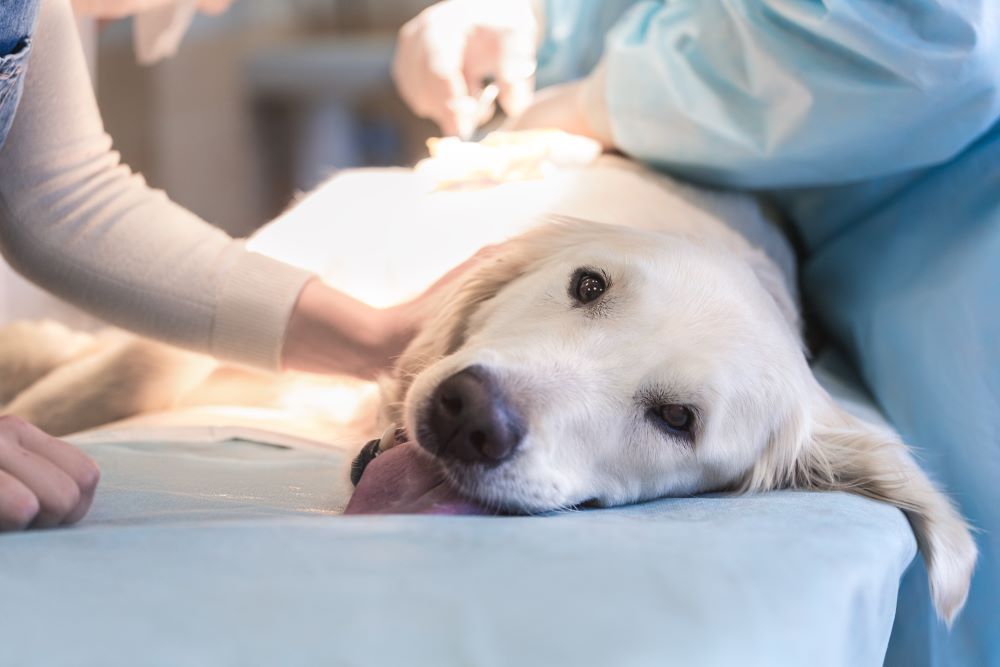1. Understanding Common Dog Illnesses
One common dog illness that often goes unnoticed is dental disease. Many owners overlook the importance of maintaining their dog’s oral health, leading to painful conditions such as periodontal disease. Regular dental check-ups and daily teeth brushing can significantly reduce the risk of dental issues in dogs.
Parasites are another prevalent issue among dogs, with fleas and ticks being primary culprits. These pesky critters not only cause discomfort but can also transmit serious diseases. Prevention is key, so make sure to use appropriate flea and tick prevention methods recommended by your veterinarian to safeguard your furry friend’s well-being.
2. Importance of Regular Veterinary Check-ups

Regular veterinary check-ups are the cornerstone of proactive pet care, serving as a vital tool in preventing common dog illnesses. These routine examinations allow veterinarians to detect early signs of health issues, address concerns before they escalate into serious problems, and tailor preventative measures specific to your furry friend’s needs. Beyond physical examinations, these appointments also provide an opportunity for important vaccinations, screenings for parasites and diseases, and discussions about nutrition and behavior.
Moreover, regular veterinary visits can contribute to the overall well-being and longevity of your beloved canine companion. By establishing a consistent schedule of check-ups, you’re not only ensuring that any potential health issues are promptly identified and treated but also building a relationship with your veterinarian based on trust and collaboration. This ongoing partnership will enable you to access expert advice on maintaining your dog’s health, making informed decisions about their care, and enhancing the quality of their life through personalized preventive strategies tailored to their individual requirements.
3. Maintaining a Healthy Diet and Exercise Routine
Maintaining a healthy diet and exercise routine for your furry companion is not just a choice but a responsibility that can significantly impact their overall well-being. Just like humans, dogs need a balanced diet rich in nutrients to support their energy levels, immunity, and muscle function. Incorporating high-quality protein sources, essential fatty acids, and fiber into their meals can ensure optimal health and vitality.
Moreover, regular exercise is crucial for keeping your dog physically active and mentally stimulated. A mix of activities such as brisk walks, playtime at the park, or interactive games can help prevent obesity while enhancing their cardiovascular health and muscle strength. By creating an engaging exercise routine tailored to your dog’s breed, age, and size, you are not only promoting physical fitness but also fostering a deeper bond through shared experiences of fun and movement. Remember that a holistic approach to their well-being includes both proper nutrition and regular physical activity – the building blocks of a happy and healthy pup!
4. Vaccinations and Preventive Medications
Vaccinations and preventive medications are crucial components of a dog’s healthcare routine. By ensuring your furry friend receives the necessary vaccines, you can protect them from a range of potentially harmful diseases. From distemper to rabies, vaccinations play a vital role in bolstering your dog’s immune system and preventing illness. Additionally, preventive medications such as heartworm preventatives and flea/tick control products can safeguard your pet from parasites that can pose serious health risks.
5. Recognizing Early Warning Signs

Recognizing early warning signs of potential health issues in your dog is crucial for prompt intervention and prevention of common illnesses. Keep a keen eye on changes in your dog’s behavior, appetite, and energy levels as these can often be indicative of underlying health concerns. For example, sudden weight loss or gain, excessive thirst or urination, and a lack of interest in usual activities could all be red flags signaling an issue that should be addressed promptly.
Additionally, frequent vomiting or diarrhea, persistent coughing or wheezing, and unusual lumps or bumps on your dog’s body should never be ignored. By staying vigilant and proactive in monitoring your dog’s health indicators, you can catch potential problems early on and seek appropriate veterinary care before they escalate into more serious conditions. Remember that regular check-ups with a veterinarian are also key to maintaining your dog’s overall well-being and catching any emerging health issues before they become advanced.
6. Hygiene Practices to Keep Your Dog Healthy
Hygiene plays a crucial role in keeping your furry friend healthy and happy. Start by regularly grooming your dog to prevent mats and tangles that can harbor bacteria. Brushing their teeth regularly not only keeps bad breath at bay but also prevents dental issues that could lead to more serious health problems. Additionally, remember to clean your dog’s ears gently with appropriate solutions to avoid infections.
Regularly bathing your dog with the right shampoo is essential for maintaining their skin health and preventing skin irritations or infections caused by dirt or parasites. Keep an eye on your dog’s nails, ensuring they are trimmed regularly to prevent overgrowth and painful nail issues. Lastly, don’t forget to sanitize your dog’s bedding and toys frequently to minimize the risk of spreading germs and bacteria that could make them sick. Prioritizing these hygiene practices will go a long way in ensuring a healthy and thriving canine companion.

